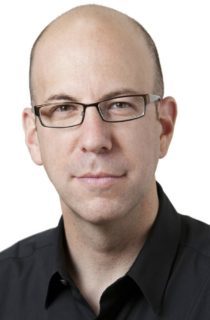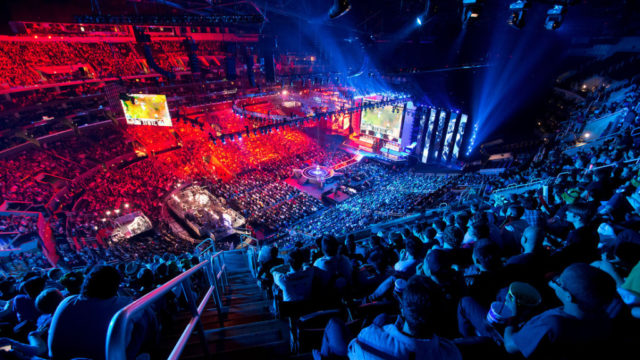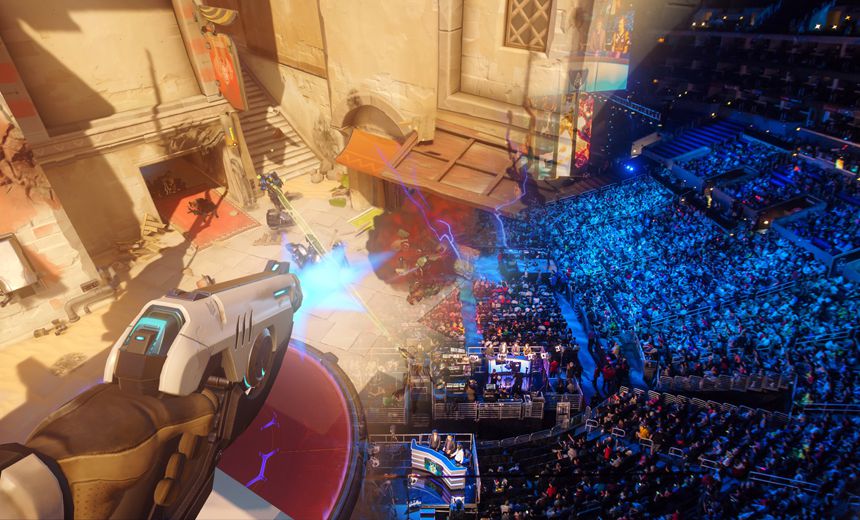Activision Blizzard is modeling traditional sports with the formation of Overwatch League by awarding city-based teams to seven entrepreneurs, leaders and companies from traditional sports and esports.
- Robert Kraft, chairman and CEO of the Kraft Group and the New England Patriots, owns the Boston franchise.
- Jeff Wilpon, co-founder and partner of Sterling VC and COO of the New York Mets, runs the New York team.
- Andy Miller, chairman and founder of NRG Esports and co-owner of the Sacramento Kings, runs the San Francisco team.
- Noah Whinston, CEO of Immortals, operates the Los Angeles team.
- Ben Spoont, CEO and co-founder of Misfits Gaming, oversees the Miami-Orlando team.
- Kevin Chou, co-founder of Kabam, runs the Seoul team.
- NetEase operates the Shanghai team.
“NRG Esports couldn’t be more honored to represent San Francisco and all of Northern California for the launch of the Overwatch League,” Miller told AListDaily.“As big believers in Overwatch, NRG has fielded one of the most popular teams in the world since the game’s release and can’t wait to bring a hometown team to the Bay Area.”

The Overwatch League, slated to begin later this year, is a unique opportunity for owners and players. As the first major esports league to feature a city-based structure, the league will drive development of local fan bases. For the first season of the league, regular-season matches will be played at an esports arena in the Los Angeles area, as teams develop their local venues for formal home-and-away play in future seasons. Matches will be played every Thursday, Friday and Saturday. A full schedule, and information about ticket sales, will be announced closer to launch.
The league will create value for team owners through advertising, ticketing and broadcast rights revenues, with teams receiving an equal share of all league-wide net revenues. Teams will also keep all local revenues generated through their home territory and venue up to a set amount each year, which is unprecedented in esports.
Above the set amount, a percentage is sent to the league’s shared revenue pool. In addition, teams will have a license to operate and monetize up to five amateur events in their home territory each year, and to benefit from the sale of league-affiliated fan items in Overwatch, with half of the revenues going into the net shared revenue pool for all teams.
“Franchising is important for the future of esports,” said Miller. “The Overwatch League was most interesting to us because it sets up a permanent team and allows us to build a fan base from San Francisco to Oakland to Sacramento. The league also offers a permanence that ensures sponsors and players that we’ll stick around. It’s a great opportunity to invest in these teams and get involved in this organization whether you’re a fan or a sponsor. . . . The bigger part is it’s both global and local, so there’s a hometown team you can root for. That’s going to take it to the next level.”
While everything from team names to venues are still being worked out, Miller said these local teams will require facilities larger than the typical thousand-seat esports arenas that are emerging across the country. He’s looking at theaters and other venues in the Bay Area to establish a home court for his team.
“Riot Games sold out Staples Center for the championship game, and we hope that for the playoffs and finals, we may be able to host events at Madison Square Garden or Staples Center. But for the large number of regular season matches, we’re looking at smaller venues.
Having local teams also allows esports team owners to court new sponsors, following in the path of NBA, NHL, MLB and MLS teams across the United States.
“It should be similar to traditional sports with Bay Area sponsors coming on board,” Miller said. “We’re hoping to get some inaugural sponsors to represent brands based in the Bay Area. This league opens up opportunities for national level sponsors for the team as a whole, as well as local sponsors inside of our arena—when we get it going—and local activations.”
Miller, who previously served as vice president of mobile advertising for Apple from 2009 to 2011, also likes the international aspect of the Overwatch League.

“Just as the NBA does with preseason and promotional games in China and as NFL has experimented with regular games in London, Canada and Mexico, the Overwatch League has built in international teams,” Miller said. “I’m sure some European teams will be added at some point.”
Miller was one of the early traditional sports owners to jump into the esports game. And he’s watched as other owners have flocked to esports, especially with the Overwatch League.
“It’s been a great couple of years as far as the mainstreaming of something that was already mainstream,” Miller said. “More people are waking up to the size, scope and passion of this gaming audience. People realize now with NBA 2K and Madden and Premiere League teams and others getting involved, that esports is here to stay; it’s really large and a great demographic and base to get involved with compared to traditional sports leagues.”
Unlike traditional sports, Overwatch doesn’t require television. While Turner Broadcasting has aired Overwatch competition, in addition to CS:GO and Injustice 2 tournaments, digital remains the key platform for esports.
“There’s a role for TV for sure, but it’s not the key for this league to work,” Miller said. “A national TV deal is a great way to augment the streaming broadcast, and hopefully introduce this league to newer fans, and an older demographic.”
Miller said now that sports icons like Kraft and Wilpon are in the esports game, fans will see a more traditional sports structure, which is good for the game and for esports as a whole. NRG does have some advantages in the Overwatch League, and that comes in the form of co-owners like NBA Hall of Fame center Shaquille O’Neal.
“Shaq is a recruiting machine,” Miller said. “There are over 50 good teams that have a player or two that could put us over the top, so recruiting is important to us, as is scouting and training. We also have [former MLB MVP] Jimmy Rollins. [Former Phillies star] Ryan Howard just came in, Shaq and [former MLB MVP] Alex Rodriquez are all actively involved in NRG. Entertainment and sports are celebrity-fueled today, so we’ll bring in people from the entertainment and music worlds to help bring this culture alive and build a community around it.”
With approximately 35 million monthly active players, Overwatch has a huge global fan base for these new teams to tap into. Miller said Blizzard has a great and very specific merchandizing plan that gives teams global distribution that fans all around the world will have interest in.
“There will also be in-game digital opportunities, where you’ll see our team prominently displayed in-game through skins and customization,” Miller said.

